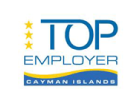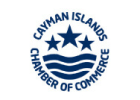Got questions? We've got answers.
Frequently Asked Questions
What IT experience do companies in the Cayman Islands typically recruit?
Historically, the primary industries in Cayman that recruit IT talent have been the financial services and legal sectors; however, there has been growth in different industries over the past decade or so.
In terms of the specific experience that employers are looking for, it depends on the company and the IT team they have. Still, typically roles can be divided into software, hardware & more business-focused positions. It is also important to note the majority of roles here in Cayman are mid to senior-level positions, with C level tech roles coming up quite infrequently (approx. once per year if even).
Software:
On the software engineering side, over 90% of companies here are Microsoft houses, using predominantly .NET technologies. Some of these companies have moved onto the cloud, where they predominantly work with Azure, although AWS is used in a small number of companies here. IT testing roles come up occasionally, and companies usually seek candidates with a mix of manual & automated QA experience.
Hardware:
Networking & IT security positions are also pretty standard in Cayman within the telecoms providers as well as managed services providers. Good commercial experience alongside valid certification (CCNP in most cases) is typically required.
Business-focused:
On the business side, the most prominent positions are for business analysts and IT project manager roles – domain knowledge is often required, which will vary between companies.
How much can I expect to make salary-wise offshore?
Earning potential depends wholly on the organization, the role itself, and your level of experience. Still, typically salaries are competitive (especially when considering the tax-free element) and are a massive incentive for IT professionals looking to take their career offshore.
Software:
- Strong software engineers would typically make US$90,000-$110,000 with more earning potential for team leads & development managers.
- QA roles would pay US$75,000-$95,000 with manager-level positions usually reaching up to US$110,000
Hardware:
- On the networking and security side, there is a slight disparity as to whether you would be working within telecoms (or another internal org) or externally as a consultant for an MSP. The base salary for in-house positions is typically higher, while MSPs usually offer base plus a bonus for work completed/overtime etc.
- Networking engineering roles would typically pay US$60,000-$80,000 for mid-level positions, with senior-level roles reaching upwards of US$100,000.
Business-focused:
- BA roles also differ depending on company and level, but standard positions would offer US$80,000-$105,000, with senior BA roles going up to US$120,000.
- PM roles are similar, with offers usually coming in US$90,000-$125,000.
Many companies offer a bonus on top of the stated salaries listed above, so it is worth considering what the entire package looks like when looking at compensation. All companies on island also offer benefits (and often relocation packages) as well, which can significantly increase the value of a compensation package.
How soon will CML Recruitment's teams find me something?
It depends on your qualifications, experience, target role(s), and location(s). Assuming you meet the minimum professional standards for your discipline and have relevant experience transferrable to the offshore market, it can take anywhere from one week to three months or longer to obtain an offer. The more flexible you are concerning the role, salary expectations, and location, the more likely we will be to find you a good opportunity within a relatively short period.
How does the recruitment process work?
Once registered, your resume will be reviewed by a CML Recruitment Consultant. Our consultants are experienced, knowledgeable, and can generally assess the prospects for your employment in offshore services very quickly.
If the consultant believes that we can help you, they will call or email to schedule a telephone call and/or request some further information. This is an opportunity for us to get to know you and find out more about your requirements and expectations and address any concerns we may have about your expectations or circumstances.
Our consultant will be able to give you an accurate and frank estimate of your earning potential, a range of options, and an indication of the likely timeline based on our experience with similar candidates. Once we have a clear picture of your background and preferences, we can initiate an action plan to approach potential employers on your behalf. We will arrange interviews in liaison with our clients’ Human Resource departments.
I've heard the cost of living is astronomical. Is this true?
The cost of living is generally no higher than you would find in any big financial centre like London or New York. Rent is always the main large expense, but bear in mind that you may get a beachfront condo with a sea view and a swimming pool for the same price as the average one-bedroom apartment in London!
Most offshore centres also have low tax rates, so it is vital to compare net salaries rather than gross, which you may be tempted to do from force of habit. It is very important to research and prepare your own detailed budget, especially if you are relocating with a spouse or dependents.
To help you better understand the reality of life offshore, we have created Offshore Career & Cost of Living Guides for each of the main jurisdictions we recruit, check them out here:
How do the working hours at offshore firms compare with onshore firms?
Working hours are pretty standard but do vary between companies and industry sectors, but as a general rule of thumb, you can expect to work a ‘standard working week’ where overtime is the exception to the rule. Contrary to popular belief, we don’t all work from the beach (but it is a popular spot pretty much any other time!).
One of the best things about working in Cayman is that commute times are negligible as offices are generally in very close proximity to home, so you can often be at work within 10 minutes (maybe 15 if you hit traffic).
It’s also worth noting that across the board, most companies have a work-life balance at the core of their company culture, with many finishing early on Fridays and many having flexible start times.
What are the immigration requirements for offshore legal jobs?
Cayman, BVI, and Bermuda require non-citizens to have work permits, which must be obtained by the employer based on a specific job. To gain a work permit for the Cayman Islands, candidates need to be an exact fit for the role they are applying for, so qualifications are essential, as are years of experience.
Concerning relocating with a partner or spouse, a legal spouse can be classified as a ‘dependent’ on their partner’s work permit to reside on-island. They are also legally permitted to search for work as a ‘dependent’ on their spouse’s permit. Unmarried partners are not permitted to reside in Cayman without having a job and permit of their own.
What kind of relocation benefits are generally available?
This varies from client to client. The minimum you can expect is your flight, two weeks car/scooter rental, and two weeks accommodation. This is usually enough time for you to make permanent arrangements for transport and accommodation. Our consultants are happy to help and advise you if required.
At the other end of the spectrum, some companies will offer flights for all your dependents as well as a relocation allowance, which may be on a cash or reimbursement basis. Moving allowances are often included; however, most rental accommodation is fully furnished and equipped. It is therefore inadvisable to bring anything that cannot easily be transported with you as luggage. There is no reason to bring vehicles, household appliances, or furniture. It is not necessary to use a relocation allowance just because you have it. Relocation packages are usually a matter of company policy and are rarely negotiable except for senior management roles.






